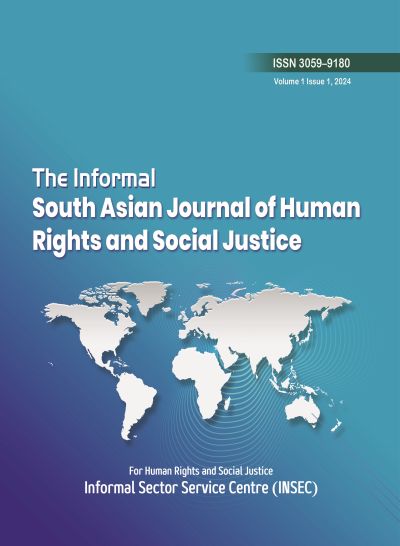Beyond Universalism or Culturalism: A Case Study of Claiming Human Rights in Afghanistan
DOI:
https://doi.org/10.3126/informal.v1i1.69163Keywords:
human rights, women's rights, cultural relativism, universalism, Taliban, AfghanistanAbstract
This paper explores the multifaceted humanitarian and human rights crises in Afghanistan following the Taliban's takeover. This event marked the establishment of a gender apartheid regime dedicated to the mass deprivation of women's rights, using culture and religion as primary excuses. The study reveals that the Taliban's edicts and directives impose gender segregation, systematically preventing women from participating in public life and usurping their decision-making power in both political and social spheres. Women who resisted these draconian policies through protests have been abducted and tortured by the Taliban, who justify their actions with religious and cultural arguments, accusing the protestors of defending Western values. These policies perpetuate the denial of women's human rights and enforce the superiority of male-dominated regimes. This paper examines the human rights claims made by Afghan women since mid-2021, demonstrating that their claims transcend cultural relativist justifications and do not merely appeal to the common moral foundation of universalists. Instead, women's human rights claims represent an appeal to the transformative potential of human rights.
Downloads
Downloads
Published
How to Cite
Issue
Section
License
Copyright (c) 2024 The Author(s)

This work is licensed under a Creative Commons Attribution 4.0 International License.
This license enables reusers to distribute, remix, adapt, and build upon the material in any medium or format, so long as attribution is given to the creator. The license allows for commercial use.




